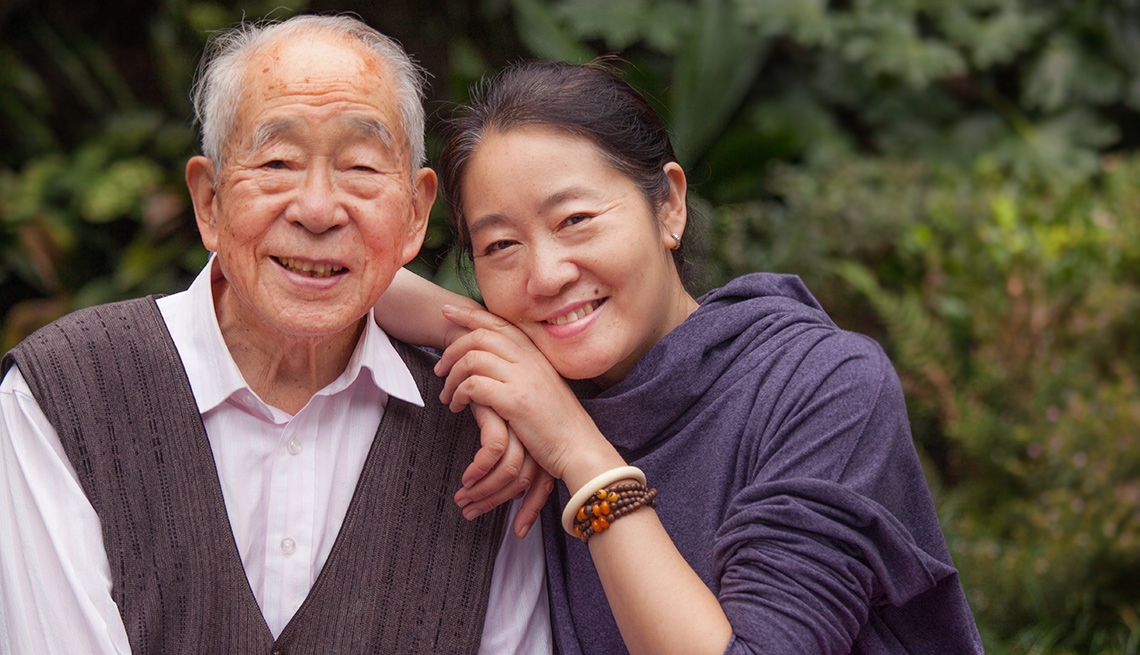
Hi there,
Being a caregiver for a family member or friend (or even a paid caregiver) who is elderly or defined as disabled can be both challenging and rewarding.
When my artist husband died of Stage 4 pancreatic cancer in 2016, he left me his paintings and his mother to care for. The problem was that his mom, Joyce, who was in her early 90s, sharp as a tack with lots of energy, blamed me and was angry for a year. Hard words flew between us.
I have become her caregiver in the last 6 years, since most of her family is in Australia. Initially, the responsibility fell to me because there was nobody else. Since we had a very contentious relationship while I was married to David, I was a very reluctant caregiver. We have come to love each other over time. I even threw her an amazing 100th birthday party last year.
In the last 7 years, my mother-in-law’s body has begun to fail her and she sometimes has gaps in her memory, calling me by the wrong name or not knowing where she is. Still at home, she has fought against the effects of aging with all her might, asking, “What is wrong with me?” and, every once in a while, “Who are you?” I point at my wedding pictures with her son in her bookshelf. It breaks my heart every time.
Keeping It Real: A Family Caregiver’s Life
Like many family caregivers, I handle multiple details and have lots of questions about how I am doing in the role.
Taking care of intimate functions - dressing, bathing, cleaning
Finding and paying others to help with the caregiving
Making sure she has enough interactions with her friends
Setting and taking her to medical and dental appointments
Buying groceries and things like a commode and hot water bottles
On a personal note, family caregivers deal with extra challenges, such as:
Being subject to outbursts of anger because I am safe for her to vent to when she’s frustrated by
Hearing “So it’s all about you,” when I schedule an appointment to accommodate my work schedule or to prioritize my self care.
Experiencing the stress of doing the best I can, feeling like it may not be enough
You are not alone. As a family or friend caregiver, can you relate?
Do you manage these kinds of responsibilities too?
Which of these family caregiver experiences have you had yourself?
What are YOUR best practices for getting everything done AND taking care of your own self care?
Caregiver Statistics from the CDC
According to the CDC brief, Caregiving for Family and Friends, 24.4% of family or friend caregivers are 45 to 65 years old, while 18.8% are over 65.
One in three (31.3%) caregivers gave over 20 hours a week of care with more than half (53.8%) doing it for over 2 years. 10.4% also care for family or friends diagnosed with dementia or another cognitive impairment issue.
One in four (25.4%) caregivers are women and one in five (18.9%) caregivers are men.
Now, there are 7 family caregivers for every older adult but by 2030, there will be only 4 family caregivers for every older adult. This is not an issue that is going away.
Caring for Yourself First When You Are a Caregiver for a Family Member or Friend
Remember that you are the one holding everything together
Prioritize your own self care, even if you think your primary focus should be on the person who you are caring for.
The better you take care of yourself, the more capacity you have to handle day-to-day aggravations or emergencies.
Manage your caregiving responsibilities around your ideal schedule, as much as possible.
Move dissonant feelings through your body to get grounded
Schedule weekly movement - dance, exercise, sing.
Schedule stillness practices - walk in nature, meditate, yoga.
Breathe deep after an angry outburst, a confused moment, hours on the phone over a medical problem.
Prepare yourself by researching predictable caregiving issues
Research places for them to live - at-home or in a caregiving facility, depending on their health.
Research probable trajectory of body and mind challenges which are coming in the future.
Consider how to manage your caregiver grief as you see the person’s physical and cognitive health deteriorates, and anticipatory grief as you think about losing them.
Focus on the Love
Take care of yourself so you have the energy to take care of them. Stand up for yourself in the face of unreasonable demands.
Slow down and focus your attention on them. It’s not about the tasks. You will spend less time and feel a closer connection.
Caregiving can be frustrating in so many ways. Be mindful of the love first to make all the rest easier.
AARP provides amazing resources for caregivers and their families, which you can access below.
Obviously, this Caregiving Grief Is Real newsletter post just skims the surface of caregiver grief resilience support resources. If you want to go deeper, here are a few options.
Action Steps You Can Take
Subscribe and share the Life After Grief newsletter by email or on your social media platforms.
Buy The Bad Widow Guide to Life After Loss: Moving Through Grief to Live and Love Again for my story with practical steps to move forward and take back your life.
Schedule a complimentary Grief Resilience Assessment with me at https://thebadwidow.com/ConnectWithAlison


